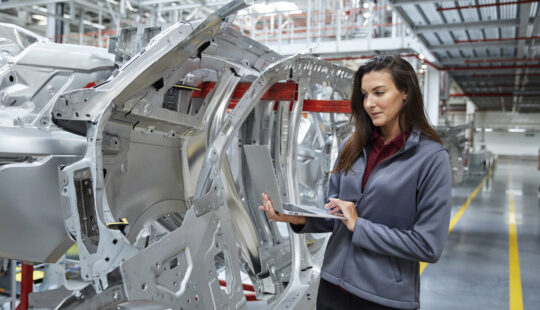Innovative technologies like blockchain directly support every organization’s higher purpose, driving trusted business. Correlating trust with technology might be a hard sell these days, but the reality is that leading organizations are charging ahead with digital transformation – not for their own sake but as a path to build trust with customers.
Blockchain’s appeal is easy to understand. It is a distributed ledger technology that records all transactions between multiple parties on one theoretically immutable chain. Since everyone on the chain can immediately see all the data, including all transactions, it reduces the risk of fraud. It is also easier for companies to prove compliance with regulations and head off expensive audits.
Here’s a round-up of the latest blockchain predictions, spotlighting an early proof of concept from the construction industry.
Linking Digital Transformation to Trust
Gartner reported that almost 70% of boards of directors said the effects of three crises – the pandemic, economic, and social – are accelerating digital business initiatives. While reading Gartner’s recent hype cycle for emerging technologies, I was struck by the second trend they called “algorithmic trust.” Drowning in vast amounts of consumer data exposure, fake news and videos, and biased artificial intelligence (AI), Gartner said that organizations are shifting from trusted central authorities to trusting algorithms. This certainly resonates with blockchain’s promise.
Gartner analysts wrote that, “Algorithmic trust models ensure the privacy and security of data, provenance of assets, and the identities of people and things. For example, ‘authenticated provenance’ is a way to authenticate assets on the blockchain and ensure they’re not fake or counterfeit.”
In one important caveat, these analysts also said that while blockchain can authenticate goods, it can only track the information it is given.
Every Industry Needs Trust
IDC unveiled a long list of industries where blockchain could foster trust, including government, healthcare, logistics and shipping, and, of course, finance – where it originated. These analysts predicted that by 2022, healthcare blockchain digital identity standards will come from the U.S. Department of Health and Human Services, enabling universal medical data interoperability, comprehensive customer/patient data, patient “health scores,” and AI. They also saw blockchain-enabled electronic voting eventually emerging. Eight percent of jurisdictions worldwide will test systems by 2023.
In the same timeframe, IDC analysts predict that 65% of transcontinental shipping will be legislated to use blockchain that encompasses crew health information, bunker fuel sourcing, and goods origination data. By the next year, 15% of supply chain transactions will use blockchain for the provenance of ethical and sustainable practices to increase digital trust. And, by 2025, these analysts said that 10% of financial institutions will use blockchain technology for know-your-customer compliance to create a transparent, auditable record of entities.
Blockchain for Modern Construction Industry
Plagued for decades by low productivity gains due to siloed, complex supply chains, the construction industry is fertile ground for blockchain experimentation. Benjamin Stoeckhert, a business development manager for Blockchain at SAP, shared an example during the recent SAP TechEd event. He showcased how blockchain could be used to help manage a large Western European railway construction project, bringing together the design company, along with steel suppliers and other numerous sub-contractors. The proof of concept ran on SAP Cloud Platform Workflow Management with blockchain.
“Fully digitizing cross-company processes means replacing manual, error-prone approvals and payment releases with real-time transparency, boosting on-time and on-budget construction project delivery,” Stoeckhert said. “With digital trust from streamlined workflow automation, companies can de-risk projects for greater efficiency and sustainability. For example, with a permanent record of the materials used in any building, companies could potentially reuse and not destroy them, reducing their carbon footprint.”
He added that blockchain could reduce late payments – the bane of small and midsize businesses that make up the bulk of the construction industry.
Blockchain Moves from Concept to Production
Martha Bennett, vice president and principal analyst at Forrester Research, expected 30% of blockchain projects to make it into production – a direct result of the technology’s maturity along with pandemic-induced acceleration. Bennett saw China moving ahead fastest, having made blockchain an integral part of its national infrastructure initiative. She mentioned China’s global Blockchain Service Network, and the European Blockchain Services Infrastructure as two different, but equally bold, regional missions.
Digital Trust at the Heart of Blockchain’s Argument
There are many unknowns as business moves from COVID-19 response and recovery to future growth. We do know that corporate purpose and trust are not feel-good, squishy ideals. IDC analysts recently wrote that, “the most favored companies right now are those that are not only secure, but also give back to their communities.…Trust is not just about security anymore; it is also about responsibility.”
As for blockchain’s role in rebuilding trust, time will tell which innovations will have the most lasting impact. The optimist in me likes to think the collective clamor for trust will grow, and a better future will happen faster than we dare hope.
Follow me: @smgaler
This article originally appeared on SAP BrandVoice on Forbes.



